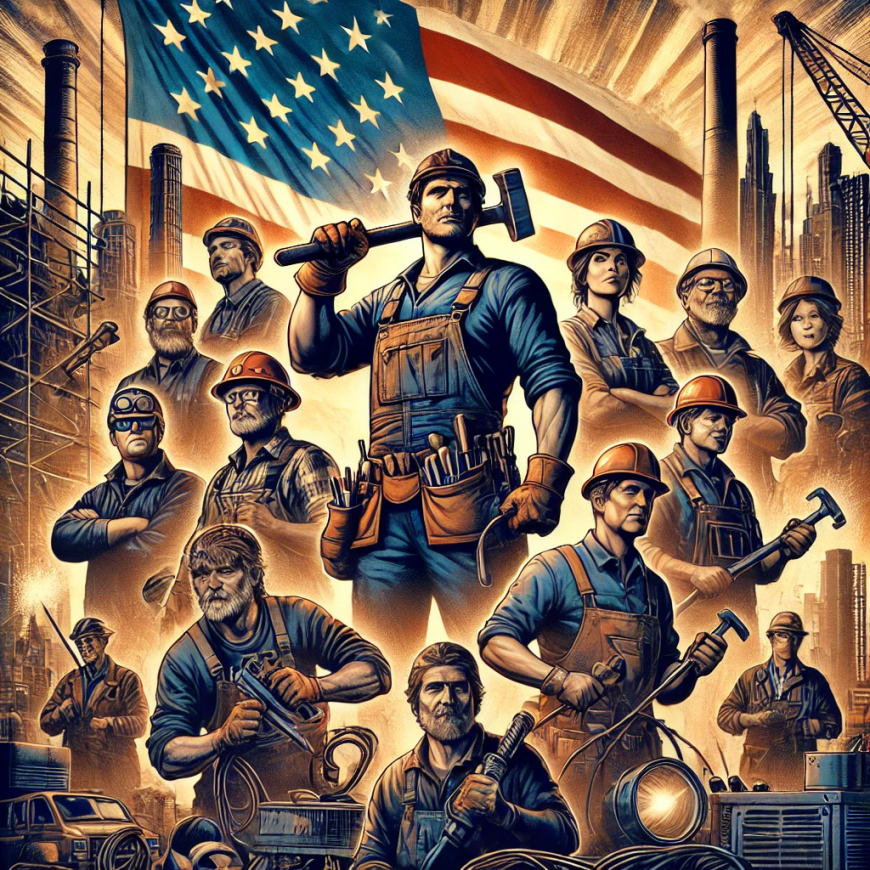The Evolution of Blue-Collar Work: Challenges and Opportunities in 2025
Skilled trades are changing in 2025 with automation, labor shortages, and new tech. Discover the biggest challenges and opportunities in blue-collar work today.

For decades, blue-collar workers have been the backbone of America—building, fixing, and maintaining the country’s infrastructure, industries, and services. From electricians and welders to truck drivers and construction workers, these skilled professionals keep the nation running. However, in 2025, the landscape of blue-collar work is shifting faster than ever.
In this article, we’ll explore the biggest challenges and opportunities facing today’s workforce and how tradesmen and women can adapt to a rapidly changing world.
The Changing Face of Blue-Collar Jobs
The stereotype of blue-collar work as dirty, low-tech, and physically exhausting is outdated. Modern trades require a combination of traditional hands-on skills and technological proficiency. Many jobs now involve automation, digital tools, and software-based troubleshooting, making adaptability a key skill.
Key Trends in Blue-Collar Industries:
- Automation & Robotics: Some repetitive tasks are being taken over by machines, but skilled human oversight is still required.
- Smart Tools & Equipment: From digital welding helmets to AI-powered diagnostics, technology is making jobs safer and more efficient.
- Labor Shortages: With older generations retiring, demand for skilled workers is skyrocketing, creating high-paying opportunities.
- Reshoring of Manufacturing: Some companies are bringing production back to the U.S., increasing job opportunities in industrial work.
Biggest Challenges Facing Blue-Collar Workers
1. The Skills Gap
Despite high demand for skilled trades, many young people are pushed toward college instead of vocational training. This has left industries struggling to find experienced workers. Apprenticeship programs and trade schools are stepping in to bridge the gap, but there’s still work to do.
2. Wage Stagnation vs. Inflation
While many trade jobs pay well, rising costs of living make it harder for workers to get ahead. The question remains: Will wages rise to keep up with inflation, or will skilled laborers continue to be undervalued?
3. Safety & Work Conditions
While technology has improved safety, certain industries still expose workers to hazards. Proper training, protective gear, and company policies play a crucial role in keeping people safe on the job.
4. Public Perception & Respect
Despite being essential, blue-collar jobs often don’t get the respect they deserve. The stigma that these jobs are “lesser” than white-collar careers leads to fewer young people considering them as viable career paths.
Opportunities in the Trades
Despite these challenges, there are more opportunities now than ever before for those willing to work hard and learn new skills.
✅ High Demand & Job Security: With labor shortages in many trades, workers can find stable, well-paying careers.
✅ Entrepreneurship Potential: Many blue-collar workers eventually start their own businesses, from independent electricians to plumbing companies.
✅ Fast Entry into the Workforce: Unlike college degrees that take four years and leave students in debt, trade school programs and apprenticeships allow workers to start earning quickly.
✅ Union Benefits & Protections: Many trades have strong unions advocating for better wages, benefits, and conditions.
The Future of Blue-Collar Work
As automation and technology continue to evolve, blue-collar workers who adapt and embrace new tools will thrive. Learning new skills, staying updated on industry trends, and taking pride in the work will be key to long-term success.
Ultimately, the backbone of America will always be built by hard-working hands. Whether it’s constructing homes, fixing vehicles, or keeping power lines running, blue-collar workers remain the heart of the economy. The world may be changing, but the need for skilled labor is stronger than ever.
What are your thoughts? Are blue-collar jobs getting the respect they deserve? Drop a comment and join the conversation!

What's Your Reaction?
 Like
0
Like
0
 Dislike
0
Dislike
0
 Love
0
Love
0
 Funny
0
Funny
0
 Angry
0
Angry
0
 Sad
0
Sad
0
 Wow
0
Wow
0


